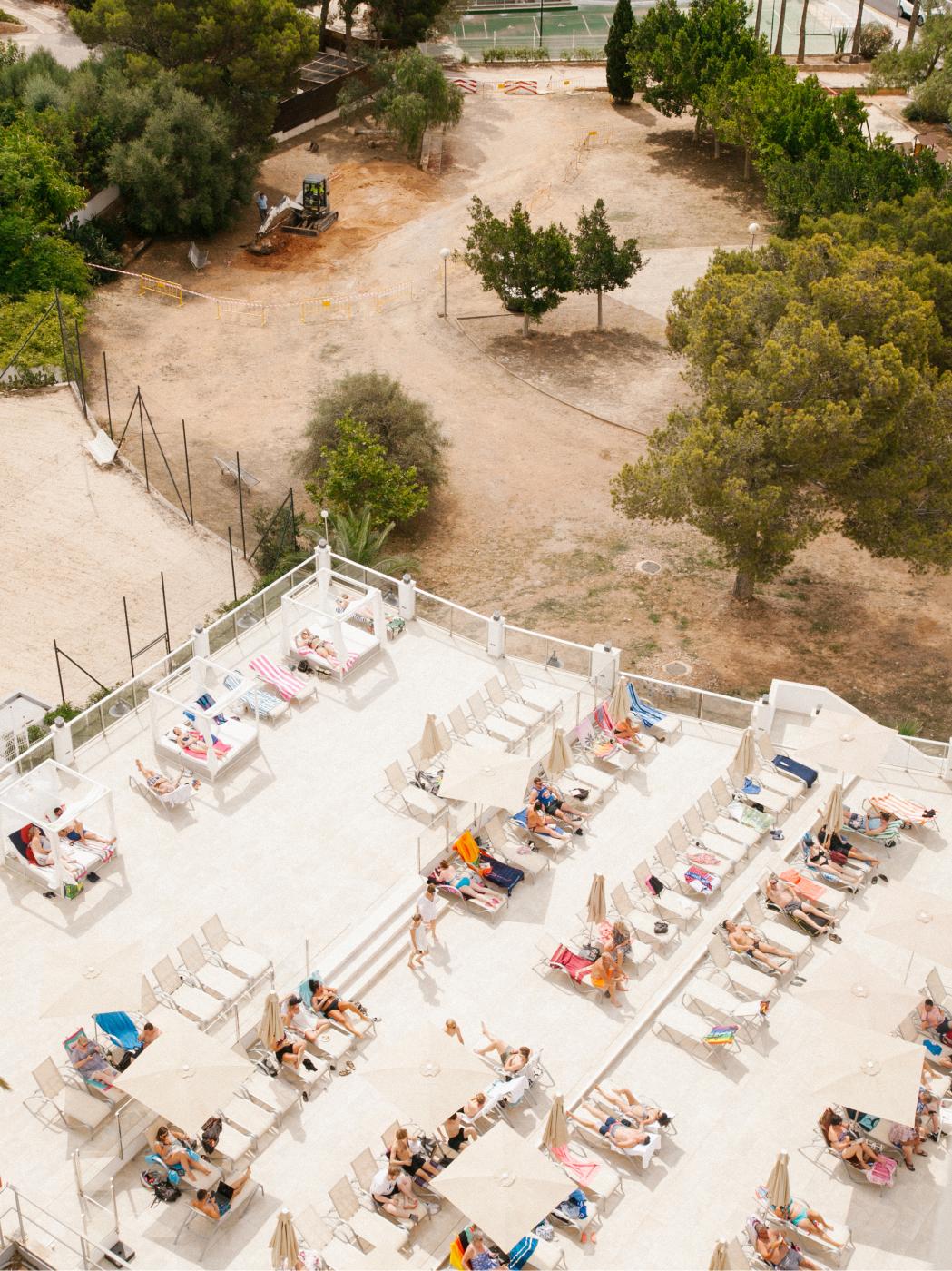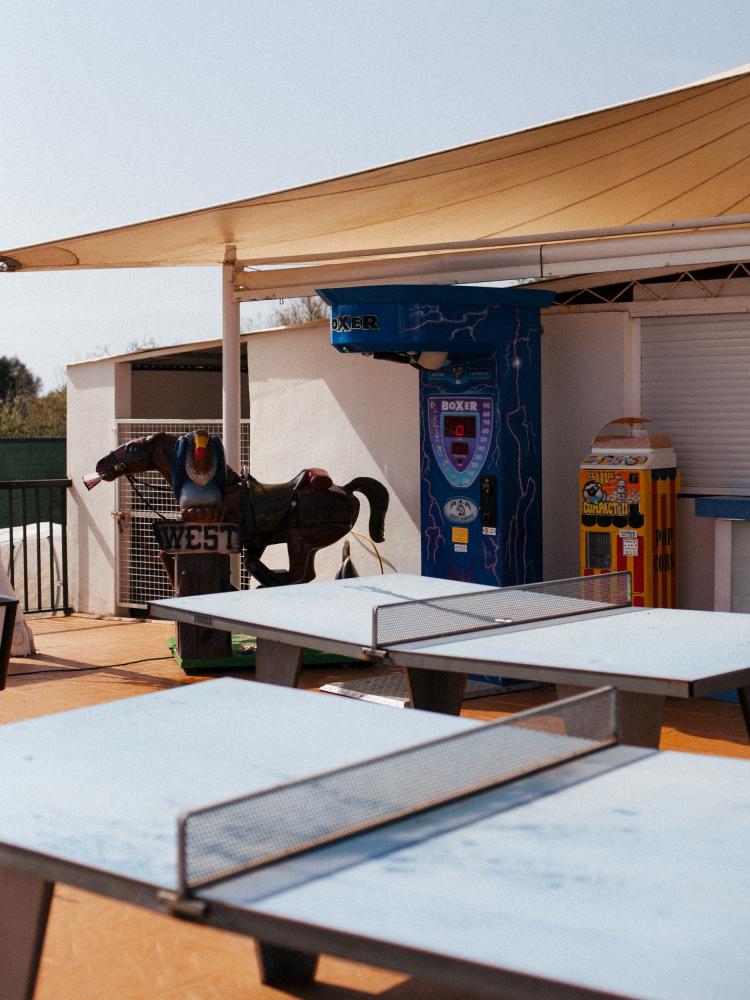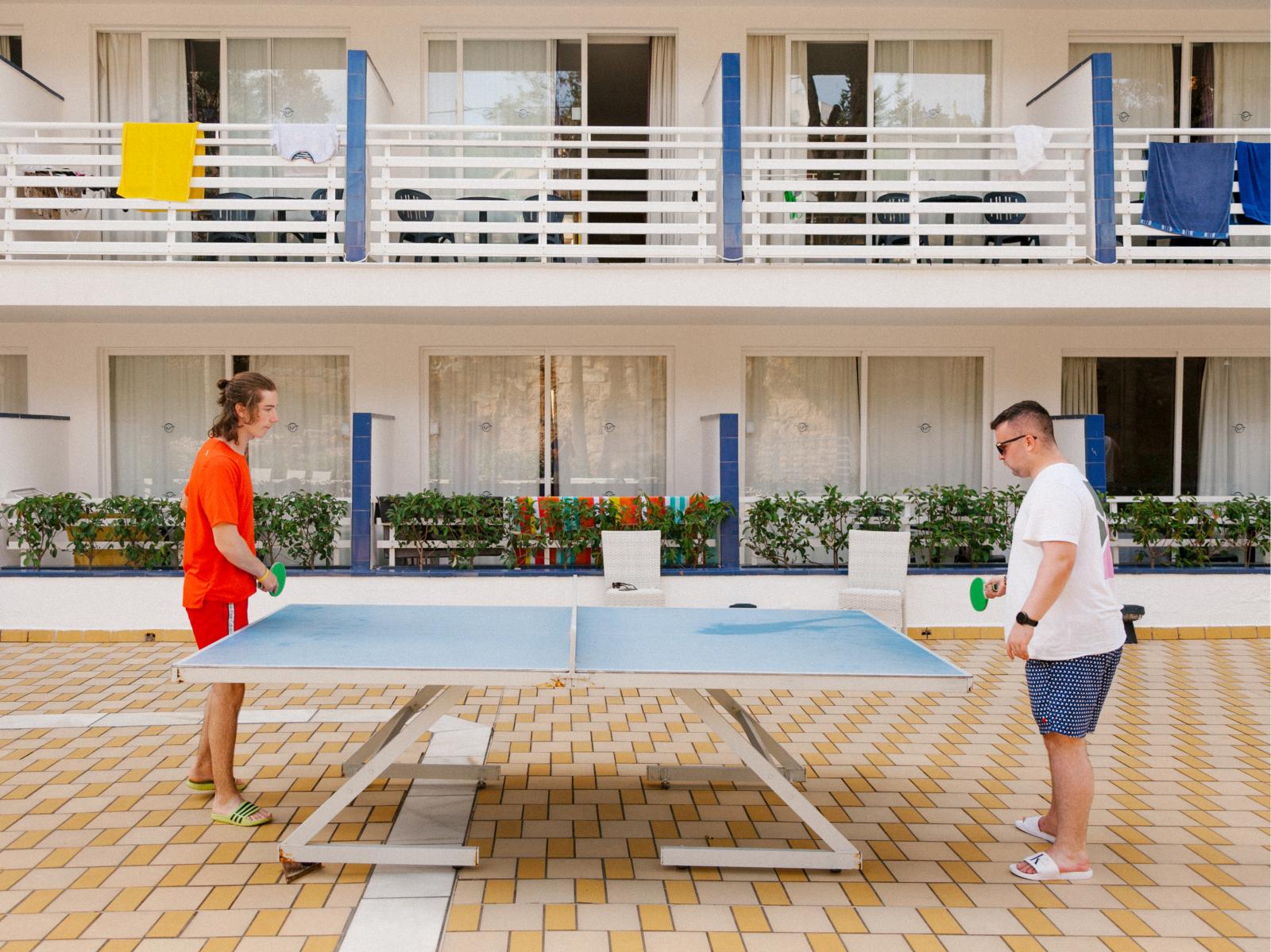Public Project
Them
La controversia generada por el impacto del turismo basado en plataformas de alquiler vacacional en la vida local —como la dificultad de acceso a la vivienda, la pérdida de identidad de barrios céntricos y el colapso de infraestructuras— parece haber eclipsado, en el debate actual sobre la turistificación, al turismo de sol y playa, del que Mallorca ha sido históricamente laboratorio y meca. Un tipo de turismo a menudo considerado como una opción simplona y carente de sustancia, con escaso interés por la experiencia de lo local.
En este modelo turístico, el hotel es una pieza esencial. Estas arquitecturas, concebidas y diseñadas para que el huésped no sienta la necesidad ni el deseo de explorar más allá de sus límites, generan espacios y códigos propios que apenas han variado en los últimos 40 o 50 años. Este anacronismo subraya la desconexión de esta experiencia turística con un exterior que evoluciona a un ritmo prácticamente exponencial.
Huyendo de lo excepcional o anecdótico, THEM busca capturar los espacios, usos y códigos característicos de estos entornos, una suerte de paraísos artificiales donde los turistas deciden autoexiliarse durante 15 días al año.
The controversy generated by the impact of vacation rental-based tourism on local life—such as the difficulty of accessing housing, the loss of identity in central neighborhoods, and the collapse of infrastructure—seems to have overshadowed the discussion on sun-and-beach tourism, for which Mallorca has historically been both a laboratory and a mecca. This type of tourism is often considered a simplistic and unsubstantial option, with little interest in experiencing local culture.
In this model of tourism, the hotel is an essential piece. These architectures, conceived and designed so that guests have neither the need nor the desire to explore beyond their boundaries, create spaces and codes that have barely changed in the last 40 or 50 years, thus creating an anachronism that highlights the disconnection of this tourist experience from an exterior world that is evolving at an almost exponential pace.
Avoiding the exceptional or anecdotal, THEM attempts to capture the spaces, uses, and codes inherent to these environments, a sort of artificial paradise where tourists choose to self-exile for 15 days a year.
In this model of tourism, the hotel is an essential piece. These architectures, conceived and designed so that guests have neither the need nor the desire to explore beyond their boundaries, create spaces and codes that have barely changed in the last 40 or 50 years, thus creating an anachronism that highlights the disconnection of this tourist experience from an exterior world that is evolving at an almost exponential pace.
Avoiding the exceptional or anecdotal, THEM attempts to capture the spaces, uses, and codes inherent to these environments, a sort of artificial paradise where tourists choose to self-exile for 15 days a year.
2,988

































